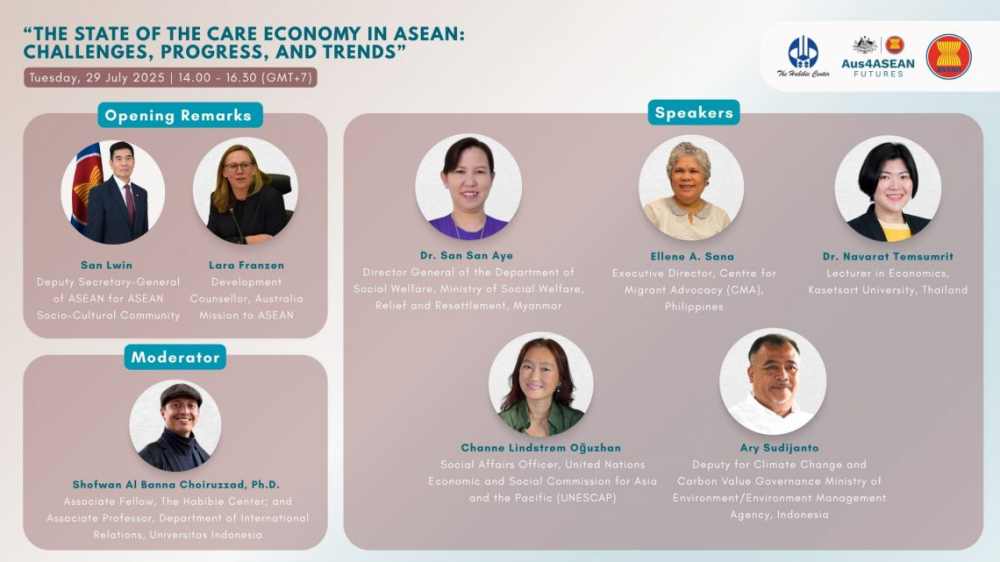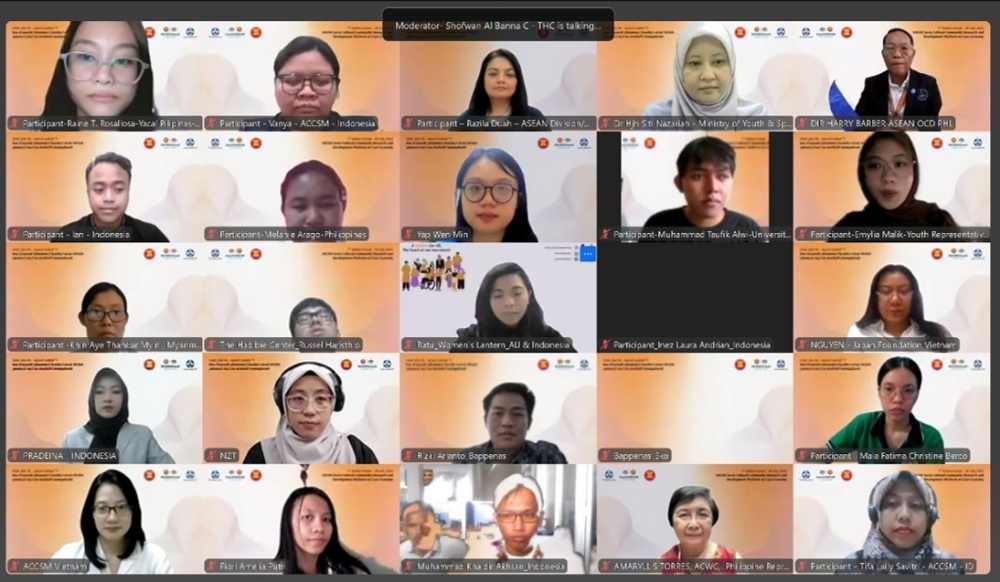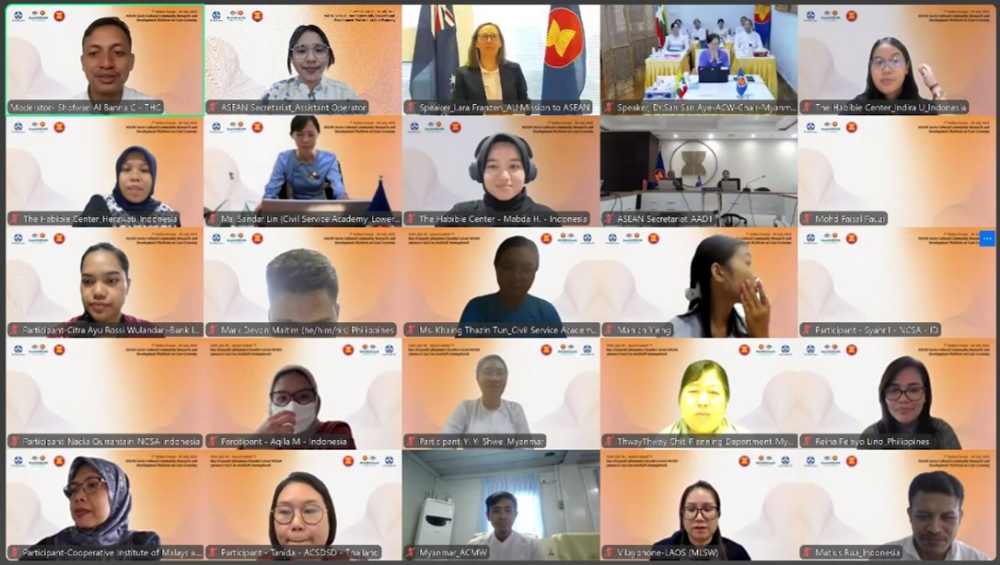Jakarta, July 29 (AseanAll) — The Online Forum on “The State of the Care Economy in ASEAN: Challenges, Progress, and Trends”, brought together policymakers, academia, and practitioners across the region to discuss perspectives on the current landscape of the care economy and the implications of various emerging trends towards the care economy in ASEAN.

The forum commenced with an opening remark by Deputy Secretary-General of ASEAN for ASEAN Socio-Cultural Community, San Lwin, who highlighted ASEAN’s firm commitment towards fully harnessing the potential of the care economy. A welcoming remark was also delivered by Lara Franzen, the Development Counsellor at the Australian Mission to ASEAN, reaffirming Australia’s support for ASEAN in strengthening care infrastructure, promoting decent work, and advancing gender-responsive policies. She highlighted the forum as a key step toward reimagining the care economy as a foundation for sustainable development and resilience.
The forum was divided into two sessions. The first session defined the care economy in the ASEAN region, exploring its emergence and how it is experienced by the ASEAN Community and its member states. Speakers from Myanmar’s Ministry of Social, Welfare, Relief and Resettlement, the Centre for Migrant Advocacy, and Kasetsart University, underscored the importance of the care economy for the overall improvement in the wellbeing and inclusive economic participation of communities in the region. This warrants greater awareness and improved comprehension of protective measures for care workers in the region, particularly migrant care workers, given their heightened vulnerability during crises.

The second session probed into various emerging trends and their potential impacts on the care economy in the ASEAN region. The discussion emphasised the importance of addressing cultural barriers in promoting a more inclusive and just care economy, while also remaining agile and responsive to growing challenges from trends such as urbanisation, climate change, and digitalisation. UNESCAP highlighted the various challenges arising from the deep-seated gender inequalities in the global economy. Moreover, the Indonesian Ministry of Environment noted the elevated burden of care work for those unable to adapt to climate change, underscoring the need for more specific discussions on the care economy within multilateral environmental forums.

The forum showed that the care economy can no longer be sidelined. Care services are deeply integrated in various facets of life, yet they have often been taken for granted. This oversight hinders a full understanding of the care sector’s contributions to economic empowerment and the wellbeing of the population.
This online forum is held as part of the ASCC Research and Development (R&D) Platform on Care Economy supported by the Australia for ASEAN Futures Initiative (Aus4ASEAN Futures) and implemented by The Habibie Center. The Platform is part of the broader ASCC R&D Platforms Programme of the ASEAN Secretariat.